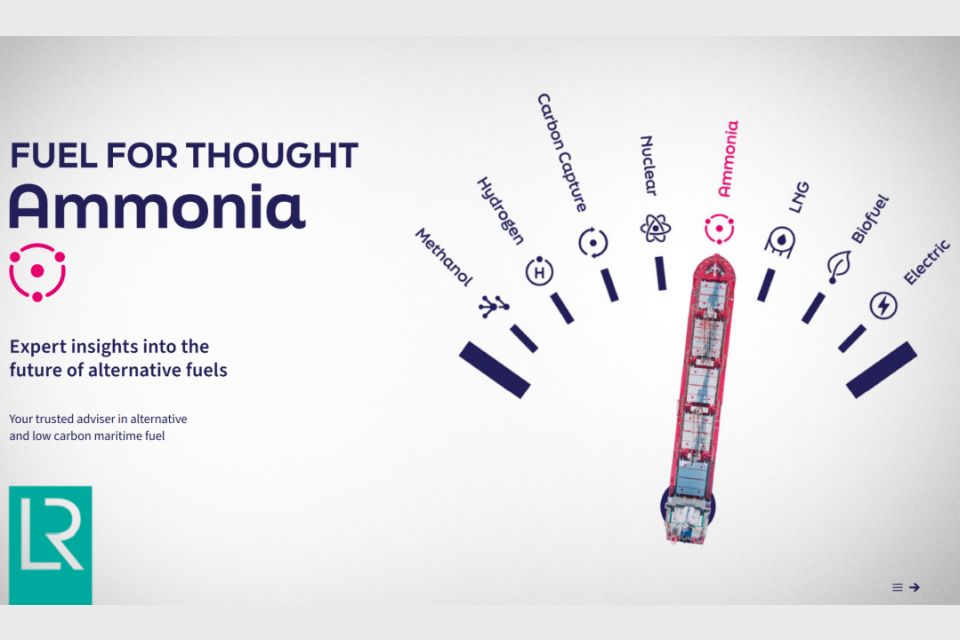The safe use of ammonia and its surrounding regulatory framework remains a critical factor for its adoption as a marine fuel. A new Lloyd’s Register report has highlighted the need for industry-wide understanding of the operational and safety challenges surrounding the use of ammonia as a marine fuel, for its adoption as part of the maritime energy transition.
The report titled “Fuel for thought: Ammonia” found that although technology for ammonia as a marine fuel is developing rapidly, gaps in the regulatory framework around its use need to be addressed, alongside resolving the challenges for the production and supply of zero or near-zero emissions ammonia.
Also read: LR, SDARI, MAN & MSC to develop ammonia-fuelled container ship
Need for a framework
The report has identified that by taking steps to develop a framework today, the industry can avoid delays and build on the strong technology case for ammonia adoption. For the safe handling and infrastructure, the maritime industry can draw on the extensive experience of transporting ammonia as a cargo throughout the 20th and 21st centuries. There are, however, still concerns around ammonia’s toxicity, crew awareness and training and its overall impact on aquatic, human and environmental health.
The study also found that among the factors to consider for ammonia adoption, social acceptance and scalability are key.
Also read: CMB.Tech to build ammonia-powered container ship
Affordability
The pricing of renewable electricity, green hydrogen and carbon capture will all impact ammonia’s affordability as a marine fuel. Clean ammonia producers, who are looking to upgrade production to create blue and green ammonia, see potential in increased demand from agriculture and other sectors, as well as shipping, all putting pressure on supply.
Liam Blackmore, principal specialist decarbonisation at Lloyd’s Register (LR): ‘Fuel for thought: Ammonia underlines the importance of addressing regulatory gaps, technology application and production hurdles in order to ensure the seamless integration of ammonia into the marine fuel landscape as part of the maritime energy transition. By proactively developing a robust framework today, it is possible to accelerate the adoption of this, whilst mitigating potential risks and hazards.’
LR is supporting ammonia pioneers in delivering designs and processes that are safe and reliable. In addition to being a founding member of the Castor Initiative, a joint development project for two deepsea ammonia propelled tankers, LR will class Exmar’s ammonia-fuelled gas carriers currently under design development by Hyundai Mipo Dockyard. LR has also issued approval in principle for ammonia-fuelled engine designs and technologies and has completed a risk assessment with Yara Marine Technologies and Pilbara Port Authority for ammonia supply and bunkering.








